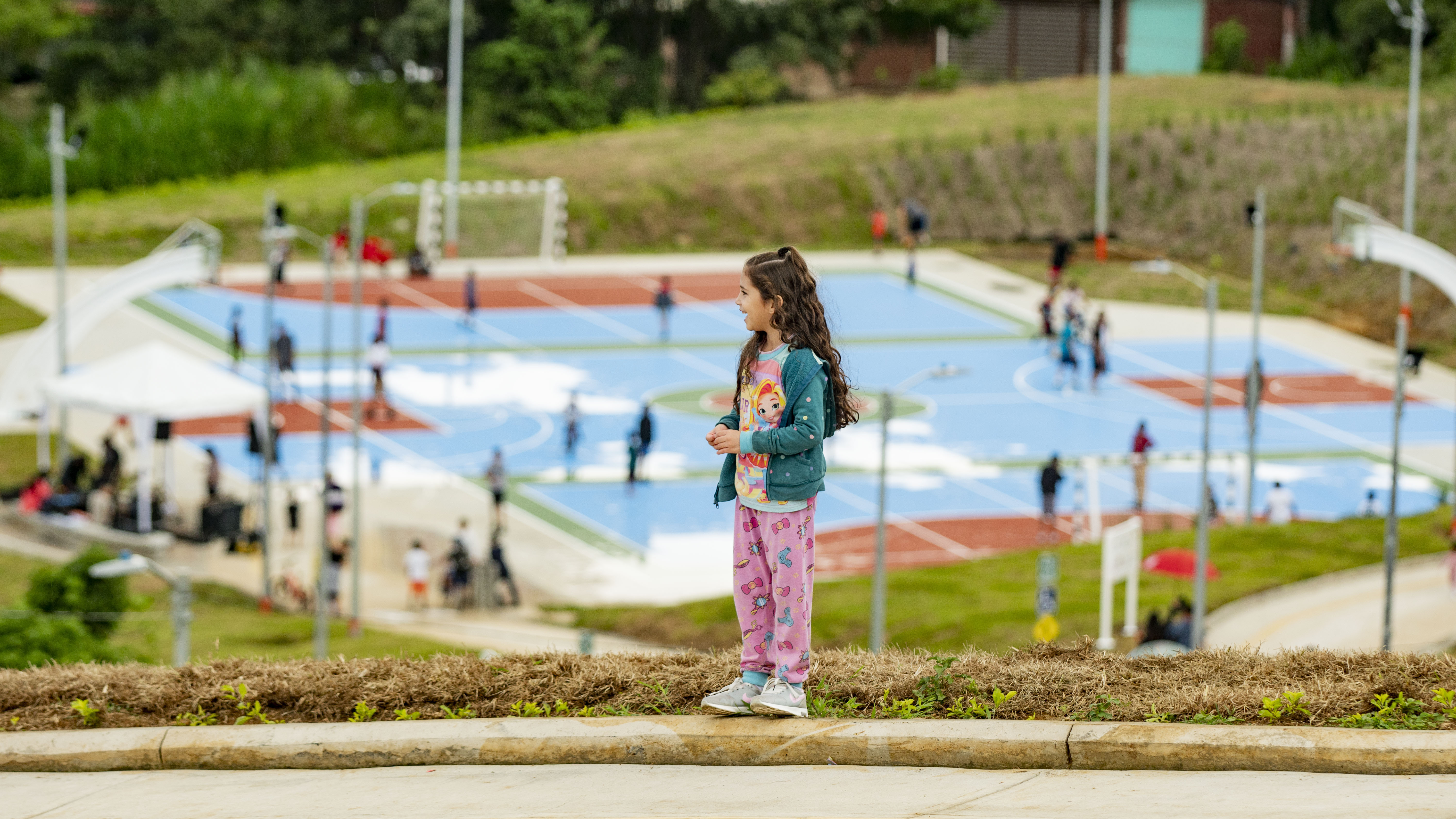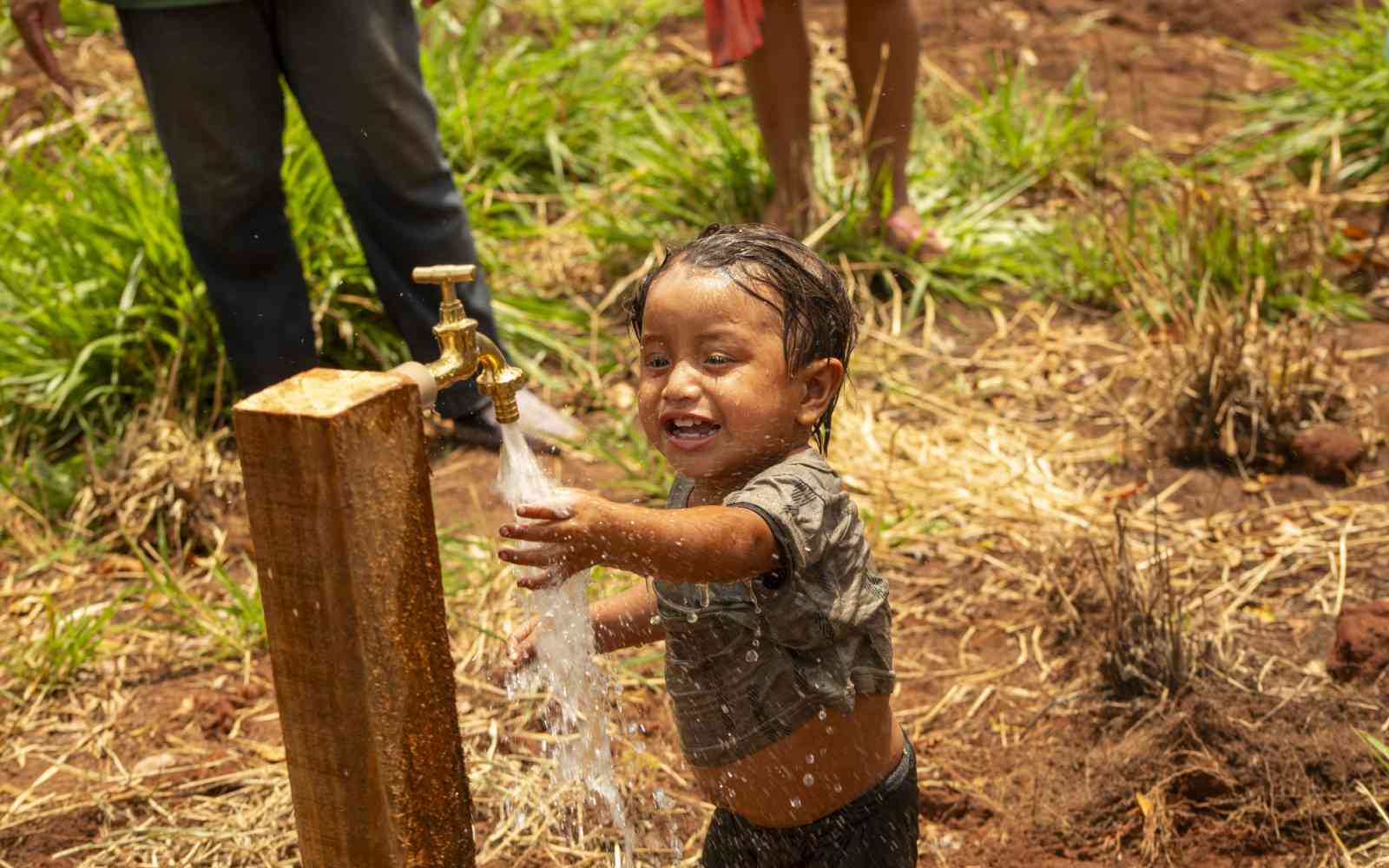The United Nations Office for Project Services (UNOPS)
Involve youth to build a better world

We must ensure that youth are part of the decision-making process for issues that impact them – and have a voice in their present and future.
Around the world, youth are witnessing cracks in systems that should be solving problems ranging from inequalities to societal issues – but often these same systems fail to meet their needs.
Young people are invited to share their ideas, innovative thinking and idealism, and their inclusive approach to leadership. But youth often lack a seat at the table during decision-making processes that impact their present – and their future.
Many inequalities that affect youth are closely linked to a lack of infrastructure.
Consider this: a lack of health infrastructure can prevent young people from seeking medical assistance when needed, negatively impacting their physical and mental health. A lack of educational infrastructure can limit access to learning opportunities – and ultimately future job opportunities. And a lack of access to green space, youth centres and other gathering areas can impact well-being and limit opportunities to build a sense of community.
Infrastructure has the potential to address many of the issues that young people face. But it's not enough to just have this infrastructure available to youth. Young people need to be engaged and involved from the beginning to ensure that the infrastructure can be used and function in a way that meets their diverse needs – not what others think their needs are.
ENGAGING YOUTH
Alajuelita – a municipality in the province of San José, Costa Rica with a large number of people living in informal settlements – has less than 0.40 square metres of green space per person for the canton's nearly 90,000 people.
The high population density of Alajuelita means less space for recreational activities, which negatively impacts the health, well-being and quality of life of Alajuelita's residents – especially young people.
To address this, UNOPS worked with the government of Costa Rica and local organizations to implement the Alajuelita Human Development Park, eight hectares of recreational and green space.
To foster youth involvement, the project included participatory workshops and community activities that strengthened a sense of belonging across social lines. Local high school students visited the construction site to learn about the project and join reforestation efforts while young people from nearby neighbourhoods attended a graffiti workshop to create murals that gave the park its own identity and helped deter vandalism.
From beginning to end, young people from the community were actively engaged in the planning, development and implementation of the project. Their perspectives helped define the park’s infrastructure and amenities.
The result: A park with a strong focus on the needs of young people in the community.
As we strive to build a world that works for everyone, we must include both the expertise of people with years of experience and the vision of young people. Each group has a perspective that, when brought together, helps ensure the unique needs, interests and aspirations of all people are properly taken into account.
We need to engage diverse groups of youth in more meaningful ways to ensure that no one – including the youth of today, tomorrow and well into the future – is left behind.
Ana Itzel Lozano, Erik J. Petterson and Marie Peschke
Ana Itzel Lozano is a Gender, Diversity and Inclusion Intern at UNOPS Latin America and the Caribbean Regional Office, where she supports knowledge management and awareness activities as well as contributes to gender, diversity and inclusion work across the region.
Erik J. Petterson is a Senior Communications, Design and Visual Identity Assistant at UNOPS Latin America and the Caribbean Regional Office. He is dedicated to communicating complex societal issues through audiovisual media and supporting youth capacity building within the organization.
Marie Peschke is a Gender, Diversity and Inclusion Specialist at UNOPS Latin America and the Caribbean Regional Office. She has more than four years of experience working to support human rights and gender equality. She is also a member of the UNOPS Youth Engagement Platform.













